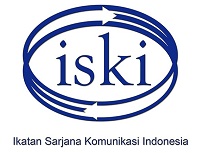Communication competence of Indonesian workers in intercultural interaction in Munich and Canberra
Abstract
The discourse of intercultural communication competence is increasingly important in the globalized world. However, there need to be more studies reported on the communication competence of Indonesian workers in intercultural interaction, particularly in the host country Germany and Australia. This study investigates communication competence in the intercultural interaction of Indonesian workers in two cities, Munich and Canberra. It focuses on intercultural challenges encountered by Indonesian workers working at different corporations and organizations in Munich and Canberra. Using qualitative methods, we examine Indonesian workers' intercultural awareness, sensitivity, and language competence in the host cities. This ethnographic study is based on interviews and informal conversations with Indonesian workers in Munich and Canberra and observations through the engagement of the researchers in the various Indonesian Diaspora community in the two cities. Based on thematic analysis, two empirical findings are essential to everyday intercultural interaction. First, intercultural awareness and sensitivity explain the knowledge and experiences of Indonesian workers on local rules and regulations, culture, and history of the host cities. Second, language competence describes the ability of Indonesian workers to understand the accents and dialects (German Bavaria and English Australian) and to overcome language barriers in everyday work and community life. The study concludes that participants have different experiences implementing communication competence in everyday interaction. It depends on the intercultural interaction intensity of Indonesian workers with their colleagues and the local community.
Keywords
Full Text:
PDFReferences
Abugre, J. (2018). Cross-cultural communication imperatives: Critical lessons for Western expatriates in multinational companies (MNCs) in sub-Saharan Africa. Critical Perspectives on International Business, 14(2/3), 170-187. https://doi.org/10.1108/cpoib-01-2017-0005
Aisha, S., & Mulyana, D. (2019). Indonesian postgraduate students’ intercultural communication experiences in the United Kongdom. Jurnal Kajian Komunikasi, 7(1), 1-13. https://doi.org/10.24198/jkk.v7i1.20901
Arghode, V., Lakshmanan, G., & Nafukho, F. (2021). Emotional intelligence, intercultural competence and online instruction: Review and reflection. European Journal of Training and Development. https://doi.org/10.1108/EJTD-05-2021-0064
Babbie, E. (2014). The parctice of social research, 14th edition. Boston, Massachusets: Cengage Learning.
Coffey, A. (2014). Analysing documents. In U. Flick, The SAGE Handbook of Qualiative Data Analysis (pp. 367-379). Los Angles, London, New Delhi, Singapore, Washington DC: Sage Publications Ltd.
Cushner, K., & Mahon, J. (. (2009). Handbook of intercultural development: Developing the intercultural competence of educators and their students. Creating the blueprints. Thousand Oaks, Califorrnia: Sage Publications.
Deardorff, D. (2006). Identification and assessment of intercultural competence as a student outcome of internationalization. Journal of Studies in International Education, 10(3), 241 - 266. https://doi.org/10.1177/1028315306287002
Efendi, F., Haryanto, J., Indarwati, R., Kuswanto, H., Ulfiana, E., Has, E. M., & Chong, M.-C. (2021). Going global: Insights of Indonesian policymakers on international migration of nurses. Journal of Multidisciplinary Healthcare, 14, 3285-3293. https://doi.org/10.2147/JMDH.S327962
Fantini, A. (2020). Reconceptualizing intercultural communicative competence: A multinational perspective. Research in Comparative & International Education, 15(1), 52-61. https://doi.org/10.1177/1745499920901948
Fechter, A.-M. (2016). Transnational lives: Expatriates in Indonesia. London, New York: Routledge. https://doi.org/10.4324/9781315549828
Fernando, J., Marta, R. F., & Hidayati, R. K. (2020). Reaktualisasi mahasiswa diaspora Indonesia dalam menjaga identitas budaya bangsa di Australia. Jurnal Kajian Komunikasi, 8(20), 194-206. https://doi.org/10.24198/jkk.v8i2.25219
Gülduran, A., & Gürdogan, A. (2021). Investigation of intercultural sensitivity levels of department managers working in hotel enterprises according to some demographic features. In E. Özen , S. Grima, & R. Gonzi, New Challenges for Future Sustainability and Wellbeing (Emerald Studies in Finance, Insurance, and Risk Management) (pp. 95-117). Bingley: Emeral Publishing Limited. https://doi.org/10.1108/978-1-80043-968-920211006
Hofstede, G., Hofstede, G. J., & Minkov, M. (2010). Cultures and organizations: Software of the mind, international cooperation and its importance for survival, 3rd edition. United States of America: The McGraw Hill Companies.
House, R. J., Hanges, P. J., Javidan, M., Dorfman, P. W., & Gupta, V. (2004). Culture, leadership, and organizations: The GLOBE Study of 62 Countries. Thousand Oaks, California: Sage Publication, Inc.
Johnson, J., Lenartowicz, T., & Apud, S. (2006). Cross-cultural competence in international business: Toward a definition and model. Journal of International Business Studies, 37, 525 - 543. https://doi.org/10.1057/palgrave.jibs.8400205
Kim, J., Zhao, H., & Diskin-Holdaway, C. (2022). Willingness to communicate and second language fluency: Korean-speaking short-term sojorners in Australia. Languages, 7(112), 1-23. https://doi.org/10.3390/languages7020112
Koswara, A. (2022). Corporate culture practices of German corporations in the host country Indonesia: An analysis from the perspective of Indonesian employees, managers and German expatriates. Wiesbaden: Springer VS. https://doi.org/10.1007/978-3-658-39289-5
Liu, L., Adair, W., Tjosvold, D., & Poliakova, E. (2018). Understanding intercultural dynamics: Insights from competition and cooperation in complex contexts. Cross Cultural and Strategic Management, 25(1), 2-31. https://doi.org/10.1108/CCSM-11-2017-0151
Messner, W. (2015). Measuring existent in intercultural effectiveness in global teams. International Journal of Managing Projects in Business, 8(1), 107-132. https://doi.org/10.1108/IJMPB-05-2014-0044
Moosmüller, A., & Schönhuth, M. (2009). Intercultural competence in German discourse. In D. K. Deardorf, The Sage Handbook of Intercultural Competence (pp. 209 - 232). California: SAGE Publications, Inc.
Nugraha, A., Sjoraida, D., & Novianti, E. (2022). Analisis strategi humas pemerintahan era milenial dalam menghadapi tata kelola informasi publik. PRofesi Humas, 6(2), 286-310. https://doi.org/10.24198/prh.v6i2.37095
Paige, R., & Goode, M. (2009). Intercultural competence in international education administration: cultural mentoring. In D. Deardorff, The SAGE Handbook of Intercultural Communication (pp. 333-349). Thousand Oaks, California: SAGE Publications, Inc.
Panggabean, H., Murniati, J., & Tjitra, H. (2013). Profiling intercultural competence of Indonesian in Asian workgroups. International Journal of Intercultural Relations, 37(1), 86-98. https://doi.org/10.1016/j.ijintrel.2012.04.002
Pruetipibultham, O. (. (2012). Developing human resource development interventions to aid expatriates cultural adaptation: Insight to the Javanese culture. Human Resource Development International, 15(1), 109-117. https://doi.org/10.1080/13678868.2011.604958
Russel, R., & Dickie, L. (2007). Paradoxical experiences of expatriate managers in Indonesia. Journal of Diversity Management (JDM), 2(1), 17-28. https://doi.org/10.19030/jdm.v2i1.5002
Schwartzman, H. B. (1993). Ethnography in organizations. Newbory Park, London, New Delhi: Sage.
Spitzberg, B. (2013). (Re) introducing communication competence to the health professions. Journal of Public Health Research, 2(3), 126-135. https://doi.org/10.4081/jphr.2013.23
Spitzberg, B., & Changnon, G. (2009). Conceptualizing intercultural competence. In D. K. Deardorf, The Sage Handbook of Intercultural Competence (pp. 2-52). California: Sage Publications, Inc.
Stehr, C. (2011). Interkulturelle kompetenz: Messbarkeit und zertifierung interkultureller kompetenz von institutionen und unternehmen. Heillbronn: German Graduate School of Management and Law.
Suutari, V., Raharjo, K., & Riikkilä, T. (2002). The challenge of cross - cultural leadership interaction: Finnish expatriates in Indonesia. Caeer Development International, 7(7), 415 - 429. https://doi.org/10.1108/13620430210449948
Thomas, A. (2009). Interulturelles training. Gruppendynamik und Organisationsberatung, 40(2), 128 - 152. https://doi.org/10.1007/s11612-009-0064-0
Tjitra, H. W., Ramakrishnan, M., & Panggabean, H. (2012). Building the global competence of Asian leaders. In W. Mobley, Y. Wang, & M. (. Li, Advances in Global Leadership (Advances in Global Leadership, Vol. 7) (pp. 273-294). Bingley: Emerald Group Publishing Limited. https://doi.org/10.1108/S1535-1203(2012)0000007016
Trompenaars, F., & Woollians, P. (2009). Research aplication. In D. K. Deardorff, The SAGE Handbook of Intercultural Competence (pp. 438 - 455). California: SAGE Publications, Inc.
Weidenmann, A., Straub, J., & Nothnagel, S. (2010). Wie lehrt man interkulturelle kompetenz? Theorien, Methoden, und Praxis in der Hochsulausbildung: Ein Handbuch. Bielefeld: transcript Verlag.
DOI: https://doi.org/10.24198/jkk.v10i2.41976
Refbacks
- There are currently no refbacks.
Copyright (c) 2022 Aang Koswara, Syauqy Lukman

This work is licensed under a Creative Commons Attribution-NonCommercial-ShareAlike 4.0 International License.
Jurnal Kajian Komunikasi Indexed by:
Editorial Office of Jurnal Kajian Komunikasi:
Faculty of Communication Science, Universitas Padjadjaran
Jl. Raya Bandung-Sumedang Km. 21 Jatinangor, Sumedang 45363, Indonesia
WA: +6282316731181 (Chat Only)
Telephone: +62227796954
Faxmile: +62227794122
E-mail: jurnal.kajian.komunikasi@unpad.ac.id
Jurnal Kajian Komunikasi Supervised by:











